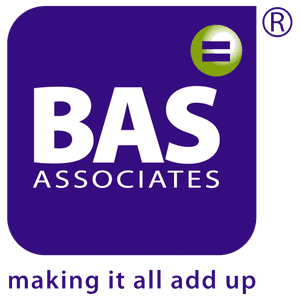For small business owners to succeed good time management is essential. In the early days of running a business you get used to jumping into every role, managing all customer relationships, marketing, financial management, offer development, coffee runs, and anything else that is deemed as necessary. However, as your business grows and you bring in employees, you should be transitioning into a leader who works on the business more than in the business.
In the ever-demanding digital world we now find ourselves in, customers expect an immediate response. Research conducted by Harvard Business School has shown that businesses who respond to leads within an hour are 7 times more likely to convert the lead to a customer. So how can you ensure you are available for quick responses to leads and urgent customer queries with so many urgent and important tasks?
1.Planning, planning and more planning
Planning your work and the work of your team is the most important place to start to ensure you are effective with your time management. In most businesses planning and scheduling of work is an ongoing activity, starting planning at the end of the previous day is a great way to get a head start the following day and to ensure you can unwind in the evening knowing tomorrow is taken care of. Without a clear plan for the day, it is likely your time will be spent putting out fires, coordinating team members, putting off key tasks or doing things that others could be doing for you.
- Prioritise all tasks into an order of importance followed by urgency
- Highlight the tasks that only you can do
- Cluster plan so all similar tasks are completed at the same time
- Write down the plan, share it and refer to it throughout the day
- Keep a phone and/or notepad handy to record appointments, deadlines and any issues or ideas that arise during the day
- Have specific times blocked out to deal with challenges, catch up with employees or liaise with suppliers and/or clients until this time, ignore your calls and emails and protect your time
- Split your day so you are spending more time on activities and tasks that have the most significant business benefit
2.Urgent and important
Distractions can easily cause anyone to give up on their daily plan. So, before you start prioritizing your tasks, it is important to control your environment. It is okay to take time out of our day and make yourself unavailable. Telling your employees that for the next 2-3 hours you are not to be disturbed, is fine (although this shouldn’t be for extended periods of time unless necessary). This will help you get through your urgent and important tasks without your concentration being broken and your time absorbed by unnecessary interruptions.
Here are a few methods that can help you prioritise your workload for efficient time management:
- Use the 80/20 rule otherwise known as pareto analysis, this method suggests that 20% of your workload and activity will produce 80% of your revenue or another view is that 20% of your customers will generate 80% of your profit. So, workout where your time is best spent and delegate the rest!
- Eisenhower the Eisenhower method was created by an American president. Eisenhower said, “what is important is seldom urgent, and what is urgent is seldom important”. So, this method suggests that you should categorise your tasks into four areas: important, not important, urgent, and non-urgent. You should then plan to complete the urgent and important tasks first followed by the not urgent (so they don’t become urgent) and either complete the not important tasks or assign them to someone else.
- ABC Method this simple method is a way to rank using A, B, C to mark your tasks in order of importance and 1,2, 3 in order of urgency. You then start with A1 first and A2 second down to the end of your list.
3.Effective Delegation
Delegation is often one of the most challenging things a business owner must do to enable successful time management. However, getting it right is essential to reduce stress, get more done, spend your time on the business and ultimately improve the business results. There is only so much you can do as a business owner!
To start delegating effectively you must firstly consider:
- Ability of the person do they have the skills and experience to complete the task?
- Availability of the person can they take on the extra tasks?
- Authority of the person do they have the authority to be able to complete the task?
- Agreed deadlines can they meet the required deadlines?
When you have considered these points, you can then delegate in the following way:
- Tasks that only you can complete
- Tasks that others can do but need your support (training required)
- Tasks that others can do but you need to complete (support with authority)
- Tasks that others can do without help
Delegating in this way will ensure that you are still delegating tasks to others even if employees need additional short-term support but will soon be able to complete them without your support whilst ensuring all other criteria are met so that the task doesn’t end up back on your to-do-list.
Following these 3 tips will ensure you can promote effective time management when it comes to your own productivity but also for your team members. Whilst the tasks may be different, the principles remain the same and by implementing this way of working to your business you may find there are some tasks that just aren’t necessary anymore or that add such little value they should be stopped.
For a complimentary Discovery Call to discuss the most appropriate level of support for reclaiming your time, a personalised quote and a guarantee of our best possible service, please complete the form below and one of our senior advisors will contact you.
Or if you prefer, please call 01296 681341 for our Wingrave Bucks Accountants office.






